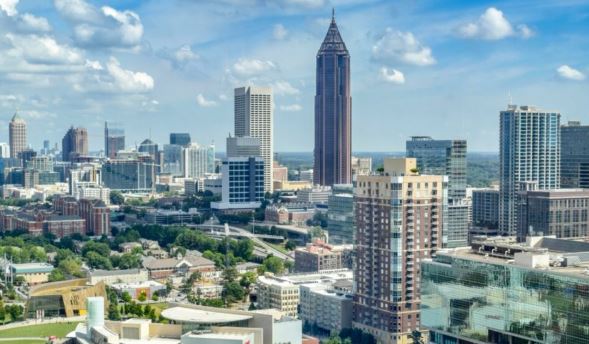Atlanta Faces Record Vacancies in Office Spaces as Work Habits Shift

Atlanta has reached a record high in vacant office spaces, highlighting significant shifts in the city’s work environment and the broader impact of remote work trends. This trend is reshaping the traditional office market and prompting a strategic rethink among property owners and city planners.
Insight into the Vacancy Increase
The increase in office space vacancies in Atlanta is primarily driven by the ongoing shift towards remote work, accelerated by the COVID-19 pandemic. Many businesses, having adjusted to remote operations, are downsizing their physical office requirements, leading to an unprecedented rise in unused commercial real estate.
Economic Impact
This surge in vacancies is affecting Atlanta’s economic landscape, particularly within the real estate sector. Landlords facing reduced rental income are exploring new strategies to repurpose or rejuvenate their properties. These strategies include converting office spaces into residential units or redesigning them to suit hybrid working models that attract a broader range of tenants.
Strategic Responses
To combat the rising vacancy rates, Atlanta is considering several initiatives. Urban planners are encouraging innovative uses for these spaces, such as offering favorable lease terms to startups and incentivizing large corporations with tax breaks and other benefits. There is also a push to adapt office spaces to better accommodate hybrid work environments, integrating community spaces and amenities to enhance their appeal.
Future of Office Spaces in Atlanta
The shift to remote and hybrid work models continues to challenge traditional office space usage. Atlanta’s response to these changes may serve as a model for other cities experiencing similar trends. By reimagining how commercial spaces are used, Atlanta can stimulate economic growth and urban revitalization.
Looking Ahead
Experts advocate for enhancing the attractiveness of urban centers by investing in infrastructure improvements like public transportation and green spaces. Such enhancements could make urban areas more appealing and livable, attracting a diverse new resident and business base.
This evolving scenario presents an opportunity for Atlanta to transform its urban landscape into a vibrant, adaptable environment suitable for the future of work and urban living.





